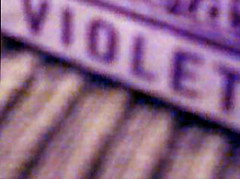RFK: Journey to Justice. LA Theatre Works. 3/18/10.
First and foremost, let me say that I'm generally in favor of L.A. Theater Works, The Play's the Thing on NPR, the commissioning of new plays, and even historical docudrama as a genre. However, RFK: The Journey to Justice, is a pretty terrible example of all of these things. The actors were fine, in fact, many of them were excellent voice talent, but, the play itself was problematic at best.
First of all, I honestly believe that in this day and age, it is decidedly unacceptable and uninteresting to write a play that features 8 men in suits and one woman playing mostly wives and secretaries. I don't care if this is a play about a famous man. Surely he met and had interesting and historically relevant interactions with women at some point between 1958 and 1968. If we don't consistently, repeatedly, vocally tell the world that this is absurd, apparently the world will keep commissioning and producing plays that perpetuate the myth that women only exist as a footnote to history.
OK, after the feminist rant, let's talk about the play itself. It's a weird play. It supposedly depicts Bobby Kennedy's slow realization of the importance of civil rights and his growing political conscience at a time when the world was changing. This could be a fascinating subject, but in this particular context, it really wasn't. Part of this was because the play was a docudrama and thus kept itself mostly to events that were on the historical record, which meant that there were many excerpts from speeches and even the off the record private conversations felt like speeches. Nothing in the play felt intimate or personal at all. The arc of the play didn't even really build properly to give weight to RFK's commitment to civil rights as the turning point of the play. It depicted a slow process of being forced to action by political circumstances that more undermined than celebrated RFK's civil rights record, and then all of a sudden in Act II, it seemed like he really cared. In telling RFK's story, the play didn't really show anything that couldn't be seen on a timeline.
But worst of all for me, the play was spectacularly infuriating, depressing, and perhaps even cynical. Because of the way the story was framed, the whole show was a march toward three assassinations. You knew they were coming from the very beginning, because you know your history, so you get the feeling that the whole play and by extension the civil rights movement is kind of futile and hopeless, both because of how much racism and poverty and injustice there still is in the world and because the play perpetuates an idea that history (or hope, or change) is the story of the great works of great men, all of whom are brutally murdered.
I don't know how anyone can watch this play and not think about how low the percentage of enrollment of African-American students is at universities (2% at UCLA in 2006, though up a bit since then), or how the combination of economic downturn and budget shortfalls are decimating services to the poor, or the current healthcare fight. I know perfectly well that most of the audience wasn't sitting there like I was listening to all the play's rhetoric about equality and justice and being furious that no one is standing up and saying the same things about LGBT rights. On a day when Lt. Dan Choi chained himself to the white house fence because HE IS BEING FIRED FOR BEING GAY, it was hard to watch a play about a white guy's valuable if occasionally paternalistic and politically motivated interest in civil rights without feeling both furious and cynical about the possibility of anyone paying attention to the current civil rights struggles. Usually, I would give a play the benefit of the doubt in relation to current events, but this particular play made very clear that it was NOT about gay rights. There were a couple of mean-spirited J. Edgar Hoover gay jokes and a lot of emphasis on the equal rights of MEN that basically built connections between the characters and with the audience through the celebration of heterosexual masculinity. Yes, of course, this is a representation of a different time and different attitudes, but the past is always filtered through the present and in this particular version, the patriarchal masculinity and homophobia are being perpetuated rather than critiqued. Historical docudrama should be an opportunity to revisit and reevaluate history through the lens of drama and distance; this production didn't provide the drama, or the reevaluation that this story need and deserves.
My 2025 in Review
-
Hi Friends! Happy Holidays! Here is my 2025 rundown.
Another year of being a full time playwright! It's been about 2 and a half
years now. I feel li...
4 weeks ago
